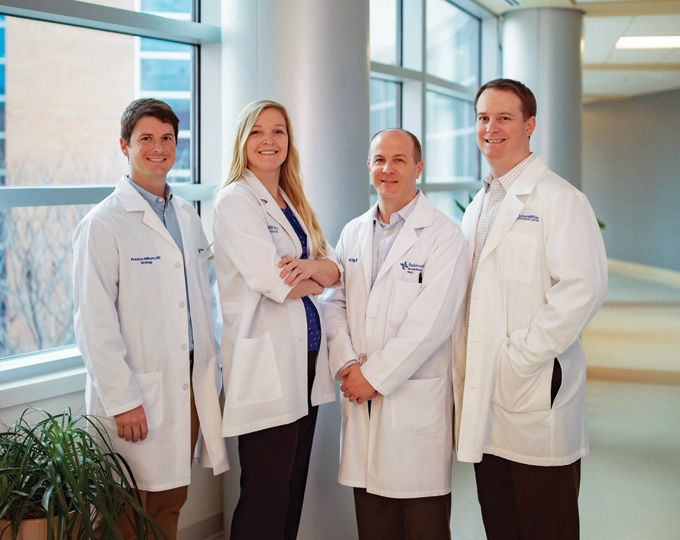
Picture yourself arriving at your clinic on the Hillcrest campus, where the seamless integration of outpatient and inpatient care eliminates the typical frustrations of community practice. Instead of racing across town between office and hospital, you'll simply walk across the street when one of your patients arrives in labor, maintaining the continuity of care that defines exceptional obstetric practice. This thoughtfully designed workflow means you can round on your postpartum patients during lunch, check on a laboring patient between office appointments, and still maintain an efficient clinical schedule that respects both your time and your patients' needs.
Your week unfolds with a sustainable rhythm that balances the diverse aspects of modern OB/GYN practice. Four days in clinic, you'll see 23–25 patients daily – a robust but manageable volume that reflects the genuine need in this community while allowing time for meaningful patient interactions. Unlike the assembly-line medicine plaguing many practices, this patient load permits you to provide the comprehensive, unhurried care that drew you to women's health. Each Tuesday, you'll shift to the operative setting, where your surgical skills flourish in state-of-the-art ORs equipped with three da Vinci XI robotic systems – a technological advantage many metropolitan hospitals would envy.
Your practice leverages technology to enhance rather than complicate patient care. Each physician receives their own Butterfly Portable Ultrasound, transforming every exam room into a diagnostic suite. The Epic EMR connects you seamlessly with the Baylor Scott & White network. When your patients need comprehensive anatomical surveys, the Maternal-Fetal Medicine team in Temple ensures expert interpretation while maintaining your primary care role.
With three da Vinci XI robots, you'll have consistent access to minimally invasive options. Two dedicated L&D ORs ensure emergency cesareans don't compete with GYN cases. This setup lets you offer the full spectrum of surgical options and maintain advanced surgical skills.
The call structure supports a sustainable lifestyle. A 1:4 call rotation begins next summer, transitioning to 1:5 and beyond. No in-house call means home call with Epic access is standard. Family Medicine residents handle unassigned patients, and optional extra call is available for additional income.
Your patients are primarily commercially insured. The Family Medicine residency manages Medicaid OB, enabling a sustainable payer mix. This allows investment in technology, support staff, and competitive compensation.
With a Level III maternal care designation and a 30-bed NICU, you can manage high-risk cases on-site. Deliver as early as 23–24 weeks with neonatologist collaboration. Maintain primary care with MFM teleconsultation as needed. This model offers professional growth while keeping families together.
Expect 7–8 daily deliveries across the service line, with high-volume days reaching 19 births. 14 L&D rooms support busy times, and 26 mother-baby rooms offer integrated postpartum care. Families choose between rooming-in or nursery care, with a 14-bed nursery supporting flexibility.
Patients benefit from a partnership with Breastfeeding Success, bringing IBCLCs to the bedside. Support includes prenatal classes, bedside consults, and follow-up via clinic, home, or telehealth. Insurance acceptance minimizes financial barriers and increases patient satisfaction.
Your day starts with Epic: a mix of exams, prenatal visits, and post-op checks. A first-time mom relaxes as you show her an 8-week heartbeat with your Butterfly device. You walk to L&D to check on a laboring 34-weeker, managing her here thanks to Level III status.
Your PA handles routine visits, freeing you for a complex consult involving gestational diabetes and chronic hypertension. Post-lunch, you perform a robot-assisted laparoscopic hysterectomy. With everything on one campus, your day is efficient, focused, and clinically rewarding.
You'll manage complex cases like placenta previa, preeclampsia, and multiples. This setting supports your growth, avoiding skill atrophy. Temple’s MFM team offers consults while you maintain primary care. The result: comprehensive OB/GYN practice with institutional backing and a balanced schedule that supports your well-being.
